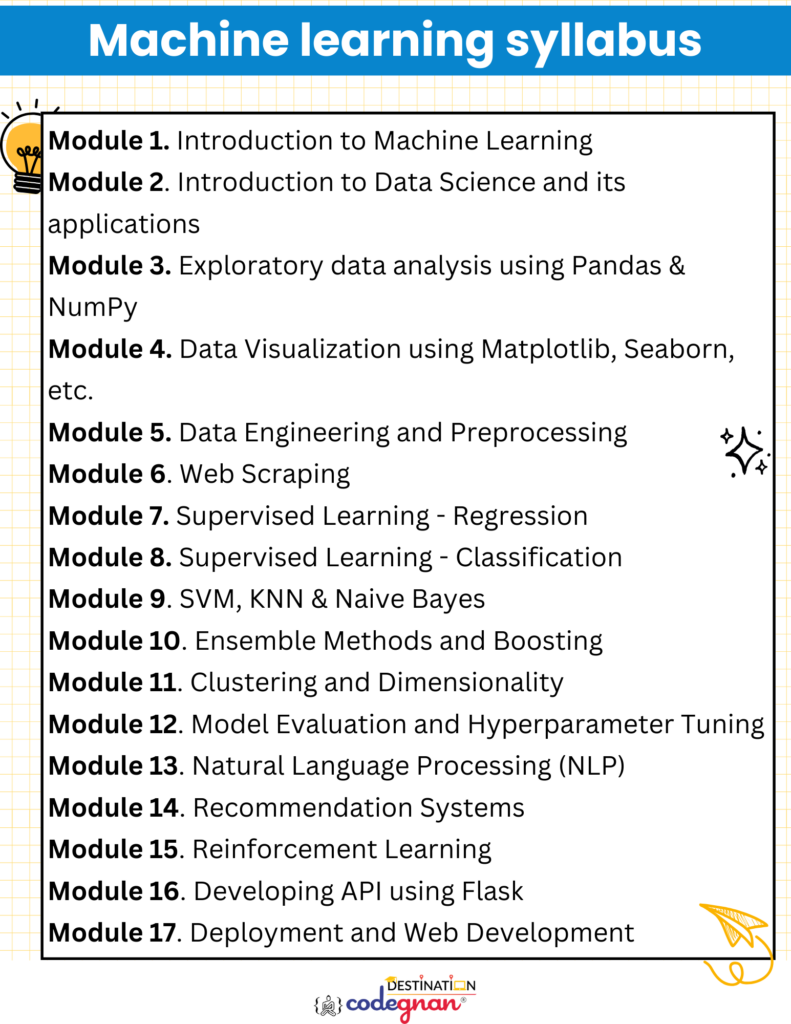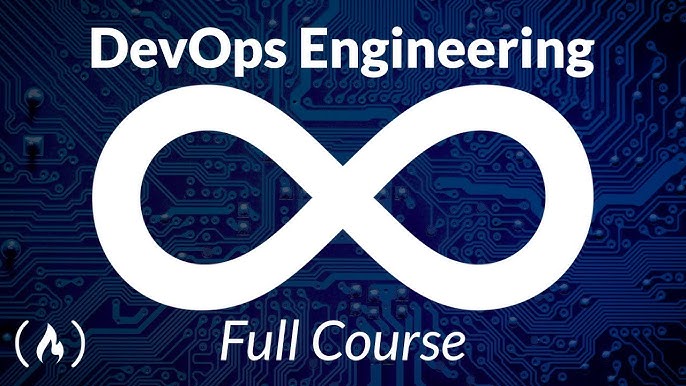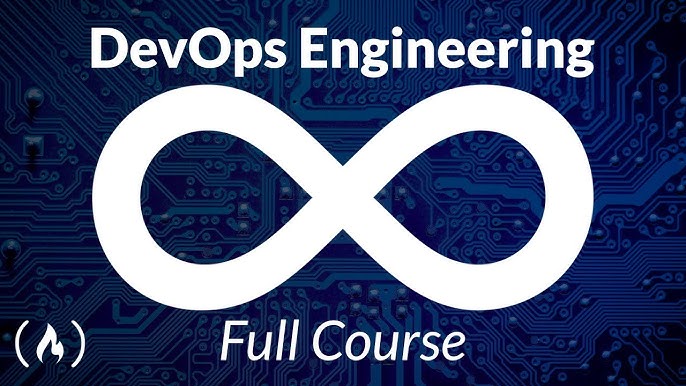Machine Learning Course Syllabus Learn Key Concepts & Applications

Machine Learning Course Syllabus: Learn Key Concepts & Applications. Unlock the world of AI with our Machine Learning Course Syllabus: Learn Key Concepts & Applications. Discover exciting topics & hands-on projects today!

Introduction to Machine Learning
Machine Learning has transformed the landscape of technology, enabling computers to learn from data & make predictions or decisions without explicit programming. The Machine Learning Course Syllabus: Learn Key Concepts & Applications is a carefully curated outline that provides the necessary framework to understand & apply these techniques effectively. My personal experience with a similar course gave me a solid foundation in both theoretical & practical aspects, equipping me with tools to tackle real-world data challenges.
Core Principles of Machine Learning
At the heart of any Machine Learning Course Syllabus: Learn Key Concepts & Applications are its core principles. Fundamental concepts like supervised learning, unsupervised learning, & reinforcement learning set the stage for what’s to be learned. Supervised learning uses labeled datasets to train models, while unsupervised learning deals with unlabelled data to find hidden patterns. Reinforcement learning, meanwhile, focuses on learning from actions taken to maximize the cumulative reward over time.
Students will benefit significantly by grasping these concepts as they will form the basis for all advanced topics encountered later in the syllabus. A good course will also emphasize the importance of selecting the right algorithms, which involves understanding the strengths & weaknesses of various methodologies. As students progress, they’ll also learn to tweak model parameters & evaluate their performance, ensuring they gain a holistic view of Machine Learning applications.
Data Preprocessing Techniques
Data preprocessing is a critical phase in any Machine Learning Course Syllabus: Learn Key Concepts & Applications. It lays the groundwork for effective model training & performance evaluation. Techniques such as data cleaning, normalization, handling missing values, & categorical encoding are essential skills that students will learn. Cleaning data ensures that the model is not misled by noise & irrelevant information.
Preprocessing Technique Description
Data Cleaning Removal of invalid or corrupt records from the dataset
Normalization Scaling features to lie within a specific range
Handling Missing Values Strategies like imputation or deletion of missing data points
Categorical Encoding Converting categorical values into numerical representations
This rigorous preparation allows students to focus on model training rather than being hindered by poor data quality. With well-prepared data, learners can experiment with various algorithms & see the resulting effects on model performance.
Model Selection & Evaluation
Choosing the right model is pivotal in the Machine Learning Course Syllabus: Learn Key Concepts & Applications. Different algorithms will suit different types of problems, & an effective course will introduce students to a variety of methodologies, including linear regression, decision trees, neural networks, & support vector machines. Understanding when to use a particular algorithm is just as important as knowing how to implement it.
Evaluation metrics like accuracy, precision, recall, F1 Score, & the ROC curve play a significant role in assessing the performance of a model. A well-structured course will guide students in comparing model evaluations to select the best one for their dataset. They will also learn about overfitting & underfitting, emphasizing the practice of balancing model complexity & performance to achieve generalizable results.
Accuracy
Precision
Recall
F1 Score
ROC Curve
These evaluation criteria will help them effectively communicate their findings & validate their models against various datasets.
Advanced Techniques in Machine Learning
Advanced techniques add depth to the Machine Learning Course Syllabus: Learn Key Concepts & Applications. Topics such as ensemble learning, deep learning, & model tuning will be explored, giving students the tools to tackle complex problems. Ensemble learning methods, such as bagging & boosting, allow students to combine multiple models for enhanced performance. On the other hand, deep learning invites students into the ambitious territory of neural networks, allowing them to handle vast data & intricate structures.
Students will learn how to implement techniques like convolutional neural networks (CNNs) for image processing tasks & recurrent neural networks (RNNs) for sequence prediction problems. And don't forget, model tuning is an essential skillset where students learn to optimize hyperparameters to obtain the best model performance. This section of the syllabus caters to those looking to elevate their Machine Learning skills significantly.
Applications of Machine Learning
Real-world applications beautifully illustrate the concepts learned in a Machine Learning Course Syllabus: Learn Key Concepts & Applications. Topics may include natural language processing (NLP), computer vision, & recommendation systems. For instance, in NLP, techniques like sentiment analysis or chatbots use models to effectively process & understand human language. In computer vision, CNNs allow for things like image recognition & classification.
And another thing, recommendation systems, as used by platforms such as Netflix & Amazon, analyze user behavior to suggest pertinent content or products. By encompassing these applications within the syllabus, students receive a broader view of how Machine Learning principles translate into various domains, making the theoretical concepts much more tangible.
Ethics in Machine Learning
As technology progresses, ethical considerations become more critical, occupying a vital section in the Machine Learning Course Syllabus: Learn Key Concepts & Applications. Topics related to fairness, accountability, & transparency will be discussed, highlighting the ethical implications of deploying Machine Learning systems. Students will learn the importance of bias mitigation & the social responsibilities that come with developing intelligent systems.
Incorporating ethics into the course encourages students to think critically about their work & promotes responsible AI practices. They'll gain insights into creating inclusive & unbiased models that serve diverse communities rather than perpetuate stereotypes or inequality. This forward-thinking approach prepares them for a future where computer science & ethics must coexist harmoniously.
"A well-rounded Machine Learning Course Syllabus: Learn Key Concepts & Applications not only educates but inspires ethical considerations in technology." Kaylah Hagenes, PhD.
Career Opportunities with Machine Learning Skills
With the increasing demand for data-driven decision-making, the intersection of Machine Learning & career opportunities has never been more promising. A section of the Machine Learning Course Syllabus: Learn Key Concepts & Applications dedicated to career pathways will guide students toward roles in data science, artificial intelligence, & related fields. Companies actively seek individuals skilled in Machine Learning, offering roles like data analyst, Machine Learning engineer, & research scientist.
Students will benefit from insights into industry expectations & building a portfolio showcasing their projects & methods. Networking & continued learning are also emphasized, ensuring graduates remain competitive in this fast-paced landscape. This focused approach equips aspiring professionals with the tools necessary to navigate their career advances successfully.
Frequently Asked Questions
What are the prerequisites for a Machine Learning course?
Typically, a background in mathematics, statistics, & programming (especially Python) is recommended. Familiarity with data manipulation & basic machine learning concepts can also be beneficial.
How long does it take to complete a Machine Learning course?
Course duration varies based on the program, typically ranging from a few weeks to several months, depending on the depth of the syllabus & the intensity of instruction.
Can I learn Machine Learning without a technical background?
While a technical background helps, students with strong problem-solving skills & a willingness to learn can succeed in Machine Learning courses, especially with additional resources available.
What tools & technologies are commonly used in Machine Learning?
Common tools include Python libraries such as Scikit-learn, TensorFlow, & PyTorch, along with platforms for data visualization & manipulation like Pandas & Matplotlib.
Are there free resources for learning Machine Learning?
Yes, many online platforms offer free resources, including MOOCs, YouTube videos, & extensive documentation for popular Machine Learning libraries, making it accessible to anyone interested.
Machine Learning Course Syllabus
In summary, a well-structured Machine Learning Course Syllabus: Learn Key Concepts & Applications serves as a comprehensive guide for aspiring data scientists & Machine Learning professionals. By covering essential concepts, practical skills, & ethical considerations, students are well-equipped to tackle real-world challenges using data-driven approaches. Whether you are considering a career shift or looking to enhance your skill set, a focused Machine Learning course will undoubtedly open up numerous opportunities for growth & innovation.






